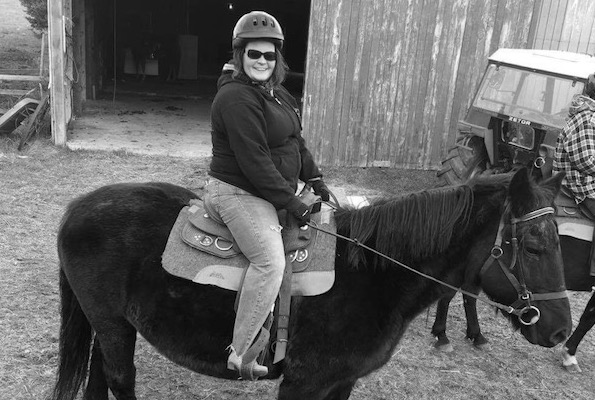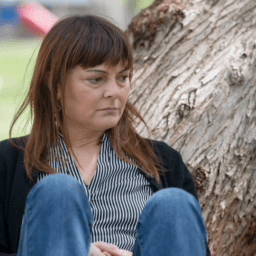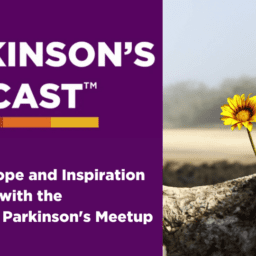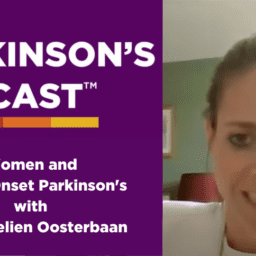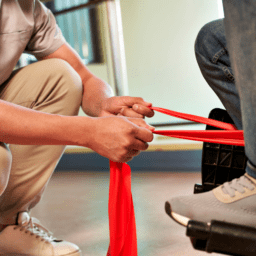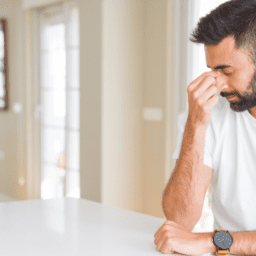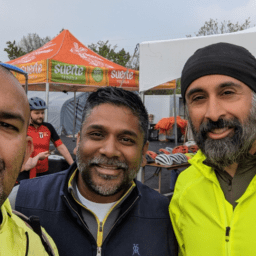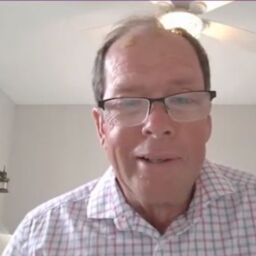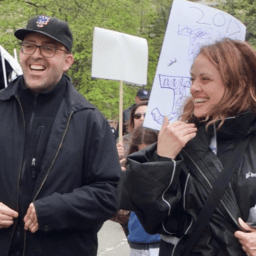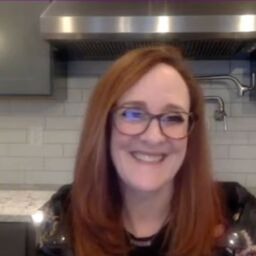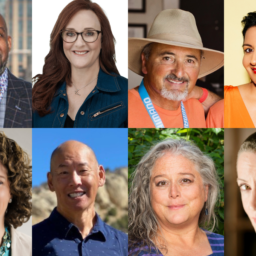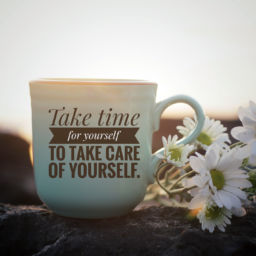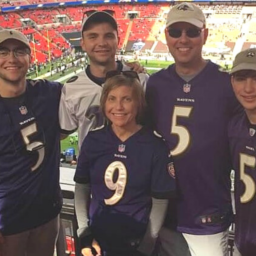At what age were you diagnosed and what was the diagnosis process like?
When I was 35, I started experiencing a pinky twitch and tremors in my right hand, followed by difficulty with fine motor skills. Being young and with a family history of MS, Parkinson’s never entered my mind.
It took 11 months before a neurologist told me he thought I had young onset Parkinson’s Disease (YOPD). A referral led me to a movement disorder specialist who gave me a prescription for Levodopa. I was officially diagnosed another six months later on September 19th of 2014, just shy of my 37th birthday.
I remember feeling relieved that I finally had an answer, and that I wasn’t losing my mind; however, I also felt like I had been kicked in the gut when I first heard the word Parkinson’s. The only thought I had was that grandpas get Parkinson’s and it makes you shake. It has since been one of my missions to educate people that it’s not only a disease of the elderly or men and there’s much more to it than shaking.
What has your life been like since your diagnosis?
My life is sometimes challenging, especially as my Parkinson’s progresses. Still, I look back to those dark days of my body not working properly and not knowing why, and I’m thankful for answers and medications that work and make my life substantially better. I cannot fathom going back to the days when I wasn’t getting treatment.
My life has also felt like a roller coaster at times, too. My eldest daughter remembers me pre-Parkinson’s, and she has gone through some anxiety troubles because of my health. It’s heartbreaking to know my child is suffering and that I’m the root of it. But as a family, we’ve worked through that and continue to do so in a positive way.
I believe as my children grow older (Samantha will be ten this July and Izabella will be seven in December), they’ll have a strong sense of volunteerism. As it is, they help me with Parkinson’s events, fundraisers for the local Chapter of Parkinson Canada and others, which I think is an essential part of our family’s story. Volunteering shows them the importance of being more empathetic and caring individuals.
My girls give me the strength to not let Parkinson’s or Dystonia get me down. They encourage me to keep on moving and keep focused on exercise and all the things I need to do to live well with Parkinson’s.
What have been some of the most significant challenges you’ve faced living with Parkinson’s?
The mom guilt! I feel awful when I’m unable to do things with my kids that I used to. However, I’ve learned to teach them that sometimes we replace one activity with another. I show them that I’ll always work hard to have fun with them, I will always fight, I will never give up and I will be there for them.
Dystonia is another big challenge. I have it in my hands, feet, forearms and calves and it’s much more difficult to deal with than most of the other symptoms of Parkinson’s as it’s excruciatingly painful. Sometimes I’m just not able to push myself the way I’d like to, but I do my best to fight through it. I refuse to let it get me down, and I don’t give up on the things I love to do that are also beneficial to me such as working out and playing music!
What are some specific actions you’ve taken to overcome these challenges?
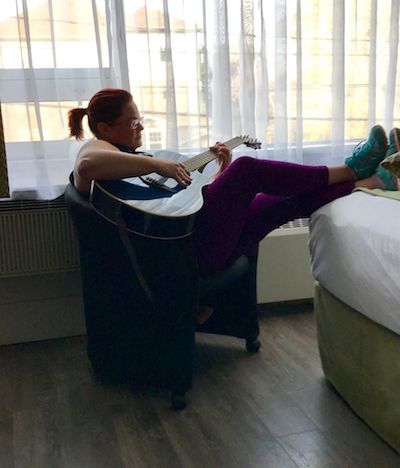 My most effective strategy is to stay positive. Not in a soft or Pollyanna kind of way though. Rather, when something goes wrong, I give myself a moment to have a pity party, and then I get back to it. And I have a fundamental rule when it comes to pity parties: I get one or two days tops to moan and lament and then I have to get up, dust myself off and get back in the game to fight another day.
My most effective strategy is to stay positive. Not in a soft or Pollyanna kind of way though. Rather, when something goes wrong, I give myself a moment to have a pity party, and then I get back to it. And I have a fundamental rule when it comes to pity parties: I get one or two days tops to moan and lament and then I have to get up, dust myself off and get back in the game to fight another day.
Nothing good comes from feeling sorry for yourself, and nothing good comes from laying down and giving up. Plus, fighting and pushing through obstacles and continuing to do things I love motivates me to move forward and do even more.
I’m also very big on thinking outside the box. My motto: “Don’t say can’t say I’ll try.” I don’t assume I can’t do something unless I’ve tried it first. Even then, I usually just think I can’t do it YET!
Writing is a great outlet for me as well. It’s a release, and it helps me get things off my chest, which always makes me feel better and more empowered.
Playing music is a big part of my life and my treatment. I’ve taught myself how to play drums, fiddle, a bit of piano, guitar and even some mandolin. (Learning something new is a great way to maintain your memory and cognitive function.) When I’m making music, my mind calms and my worries go away.
I horseback ride once a week for therapy because it works balance, leg strength and posture. Plus, horses are good for the soul. I work out lifting weights at least three times a week (usually five or six) because exercise is a critical key to living well with Parkinson’s and slowing progression.
Finally, I like to try new things that are outside my comfort zone and that most people assume I can’t do. For example, rock climbing. And skydiving. I hope to skydive this summer as I’m in the process of trying to get approved for DBS and they say velocity is not good for things in your brain. LOL! So, I hope to do it before the surgery if I get approved. (That’s a long story too. Maybe another time!)
I plan to go full steam ahead and live life with the same adventurous spirit I did before I was diagnosed.
What are some of the most surprising things you’ve learned from living with Parkinson’s?
I’ve learned just how many young people are living with it. I’m blown away by the rise in YOPD. Through my blog, I’ve met so many people in my age category who are living with Parkinson’s. They’ve been a blessing to get to know. Many of them I met in person at the last World Parkinson Congress (WPC), and I can’t wait until the next one in Kyoto in June of 2019, where I’ll get to meet even more of my online “Parkie” friends. I’m an official blogging partner of the WPC, and it’s an honor. This community enables me to learn from others living with Parkinson’s, and we love sharing information with each other.
What do you hope your kids will take away from this experience?
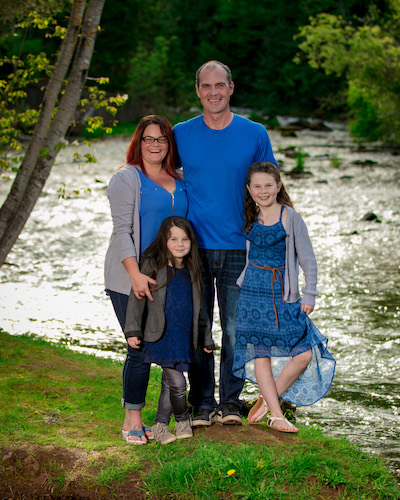 I hope my kids learn that no matter what life throws at them, they can achieve great things and that they should never give up.
I hope my kids learn that no matter what life throws at them, they can achieve great things and that they should never give up.
I hope they learn by our example to always be kind, caring, empathetic and non-judgemental.
I hope they ask questions and educate themselves before they make any assumptions.
I hope they live each day to the fullest and find joy in every situation—even on the hard days—because there’s joy to be found if you look hard enough.
Most of all, I hope they know that their mom is a fighter and that I’ll always be there for them.
What or who has been your greatest support throughout your journey and why?
The day I was diagnosed, my husband, Aaron, didn’t even skip a beat. He just said, “In sickness and in health. We’ll get through this.”
He and my children are my greatest supporters. My girls call me famous because of my blog and the various interviews I’ve done to educate and raise awareness about Parkinson’s. (It’s pretty great to be cool in your kids’ eyes.) They are my cheerleaders for sure.
I’m also blessed with a handful of family and close friends who lift me up when I need it and who stand by my side always. My parents, my sister Nadine, my bestie, Gail and my friend Michelle are always there for me. I am so fortunate.
If you could offer advice to other women living with Parkinson’s, especially those who are mothers to children who are still at home, what would it be?
I’d encourage them to give themselves a break. Moms naturally think they’re supposed to be superwomen. We must do it all, and we must do it all perfectly! We put this insane pressure on ourselves. But when you’re faced with something like Parkinson’s, sometimes you have to slow the roll and not beat yourself up about it.
If we want to be good moms and wives over the long haul, we need to go a little slower sometimes, and that’s ok. Don’t hide your reality from your kids because they’re so much smarter than we give them credit for. They usually know when something’s not right. It’s better for them to hear it from us than to have them stressed from trying to be mind readers all the time. They can’t. Nobody can.
One thing I’ve written about before is the idea that admitting defeat is not a failure if the goal remains the same. It just means the path to get there has changed. Slowing down doesn’t mean you’re a bad mom, it just means you’re taking care of yourself, and you need to do that if you want to take care of your family.
What are you most looking forward to now?
I can’t wait to see my old and new friends at the World Parkinson Congress in Kyoto Japan. And learn about all of the new advances and exciting things coming up in the world of Parkinson’s. Plus, the community that gathers there is amazing. I am so inspired by the people I see there who are living well with Parkinson’s and rocking it out no matter what. It’s truly a fantastic experience that will leave anyone motivated, inspired, encouraged and ready to face the challenges Parkinson’s brings. I can’t wait for that!
Where can people find you online?
They can visit my blog, connect with me on Facebook and Twitter or subscribe to my YouTube channel.
Interested in learning more about women and Parkinson’s?
Join us in Portland on Saturday, June 23, 2018, for The Victory Summit® Parkinson’s Symposium where we’ll be launching our new session – Finding Your Community: Women with Parkinson’s. Registration for this free, one-day event is now open.


